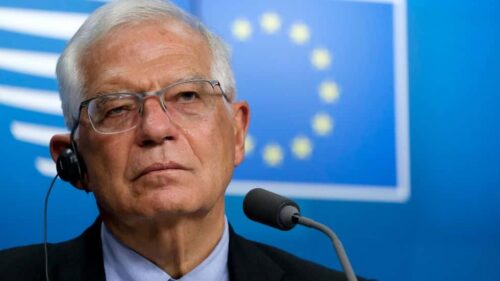The international opprobrium Israel faced before its intensified military offensive in Gaza has now overshadowed the strategic victories it achieved in the early months of the conflict. Western sympathies, which often leaned toward affirming Israel’s right to self-defense, have receded in light of the unmitigated humanitarian catastrophe unfolding in Gaza.
In this environment, where Israel risks becoming a global pariah, it is necessary to revisit how Prime Minister Benjamin Netanyahu’s Gaza strategy devolved from decisive military success into a spiraling political failure. Following the October 7, 2023 attacks, Israel declared two primary objectives: to secure the release of hostages held by Hamas and to eliminate the group entirely. The initial shock of Hamas’s tactics gave way to a strong and coordinated Israeli military response that expanded beyond Gaza, including escalations in Lebanon, Syria, and Yemen.
What is the end goal?
Despite widespread skepticism, the Israel Defense Forces (IDF) achieved significant operational gains. By systematically degrading Hamas’s military infrastructure, the IDF rendered the group incapable of sustaining combat operations. By late 2024, Hamas had lost its capacity to obstruct Israeli advances. The IDF established two operational corridors that effectively cut communication and resupply lines between Hamas units in the north and south, isolating them from external support.
These developments allowed Israel to claim victory against several of its regional adversaries. The campaign disrupted Iran’s proxy networks, weakened Hezbollah’s position in Lebanon, and undercut Syria’s military capabilities. However, these achievements came at a steep cost.
Israel’s current crisis stems from a fundamental political failure: the government’s refusal to articulate a clear vision for post-war Gaza. From Clausewitz to Kissinger, war has always been understood as a continuation of politics by other means. Without a coherent political strategy, even the most successful military campaign risks collapse. Former Prime Minister Ehud Barak argued that Netanyahu deliberately withheld his post-war plans to avoid acknowledging a politically inconvenient truth: eliminating Hamas would require replacing it with a governing body acceptable to regional actors, the international community, and Palestinians themselves.
Netanyahu’s refusal to define this political end state has hamstrung IDF operations and left Israel without a credible path to long-term stability. Commanders lacked guidance on how to shape military actions to support a sustainable outcome. The result has been tactical success without strategic clarity.
What can Sun Tzu teach Israelis?
In May, Israel launched Operation Gideon’s Chariots, a full-scale ground campaign in Gaza. Netanyahu publicly supported the idea—championed by former President Trump—of relocating Gaza’s civilian population, calling it a “brilliant plan” that would reshape the region’s geopolitical dynamics. However, the escalating violence has created a macabre scene that undermines any strategic gains made on the battlefield.
At this stage, the complete elimination of Hamas appears increasingly implausible. Rather than pursuing a fantasy of total victory, Israeli leadership should consider negotiations that prioritize the release of hostages and an end to hostilities. Sun Tzu’s Art of War offers a relevant lesson: when an enemy is encircled, leaving them a way to retreat can prevent desperate, destructive resistance. The so-called “golden bridge” strategy allows a path for disengagement that avoids further bloodshed.
Strategic blowback
Israel now finds itself under growing pressure on two critical fronts. First, the humanitarian crisis in Gaza has tarnished the country’s moral standing and legal credibility. Many observers now compare Israel’s isolation to the international pariah status once reserved for South Africa’s apartheid regime. Second, global antisemitism has surged dramatically, even as the IDF continues its operations. The military campaign, while tactically effective, has not shielded Jewish communities abroad from rising hate crimes.
In the broader context, Israel’s ongoing war effort has strained its economy and compromised its global image. Neither outcome serves the long-term security interests of the state. A negotiated deal that facilitates the return of remaining hostages and opens the door to rebuilding Gaza would better preserve what Israel has tactically accomplished.
Sun Tzu’s wisdom, penned more than 2,000 years ago, still applies to today’s geopolitical realities. Netanyahu and his right-wing coalition now face the consequences of ignoring these ancient principles in one of the most volatile regions on Earth.
[Nicolette Cavallaro edited this piece.]
The views expressed in this article are the author’s own and do not necessarily reflect Fair Observer’s editorial policy.
Support Fair Observer
We rely on your support for our independence, diversity and quality.
For more than 10 years, Fair Observer has been free, fair and independent. No billionaire owns us, no advertisers control us. We are a reader-supported nonprofit. Unlike many other publications, we keep our content free for readers regardless of where they live or whether they can afford to pay. We have no paywalls and no ads.
In the post-truth era of fake news, echo chambers and filter bubbles, we publish a plurality of perspectives from around the world. Anyone can publish with us, but everyone goes through a rigorous editorial process. So, you get fact-checked, well-reasoned content instead of noise.
We publish 3,000+ voices from 90+ countries. We also conduct education and training programs
on subjects ranging from digital media and journalism to writing and critical thinking. This
doesn’t come cheap. Servers, editors, trainers and web developers cost
money.
Please consider supporting us on a regular basis as a recurring donor or a
sustaining member.
Will you support FO’s journalism?
We rely on your support for our independence, diversity and quality.








Comment